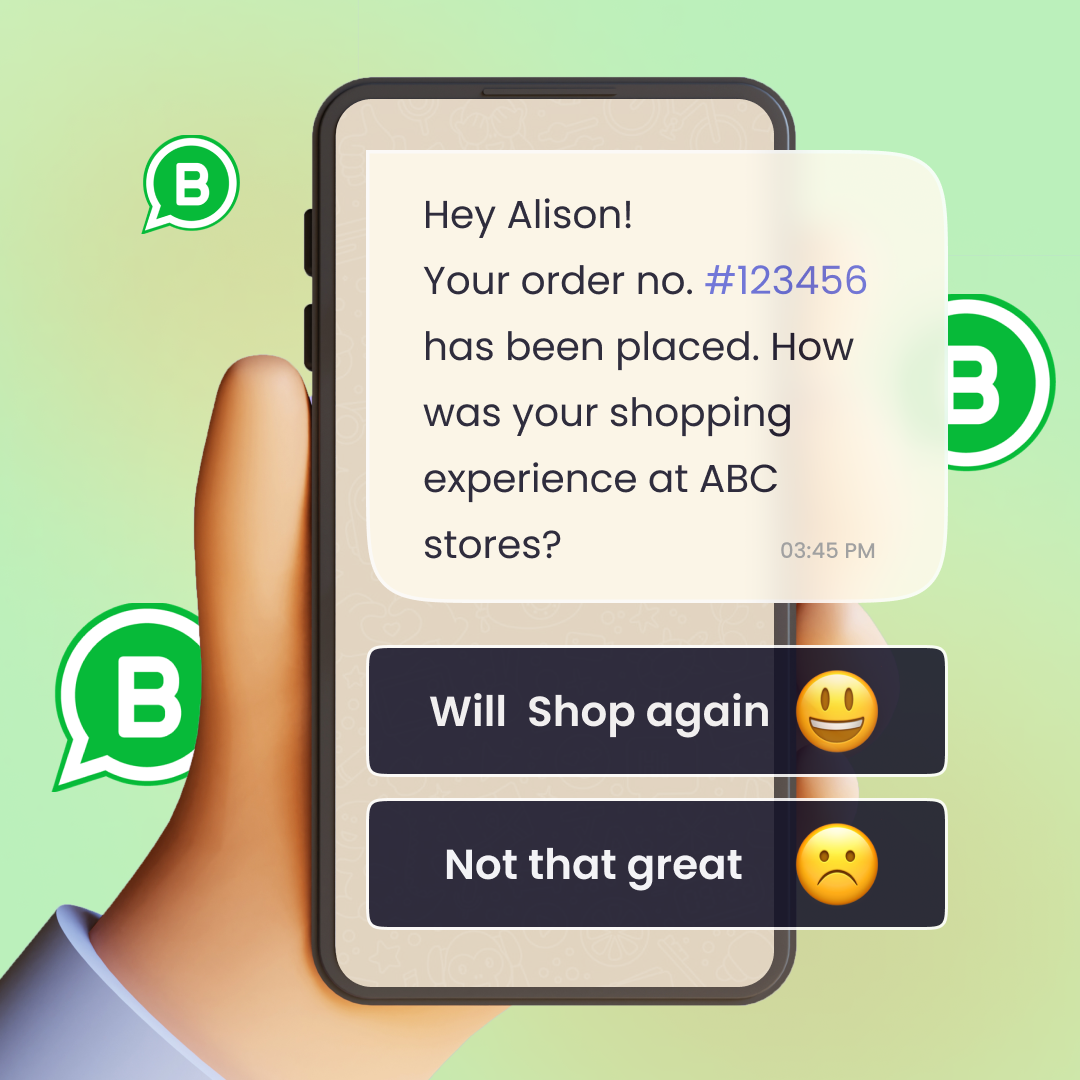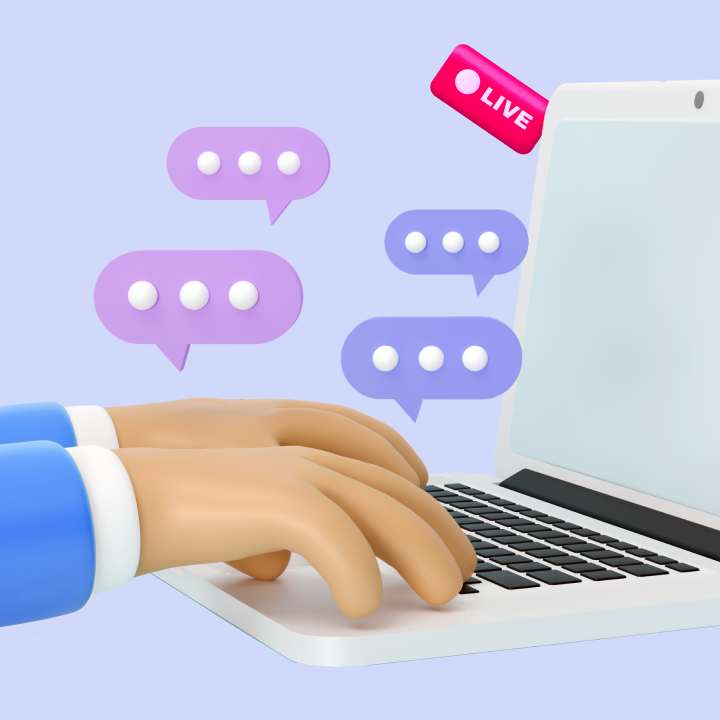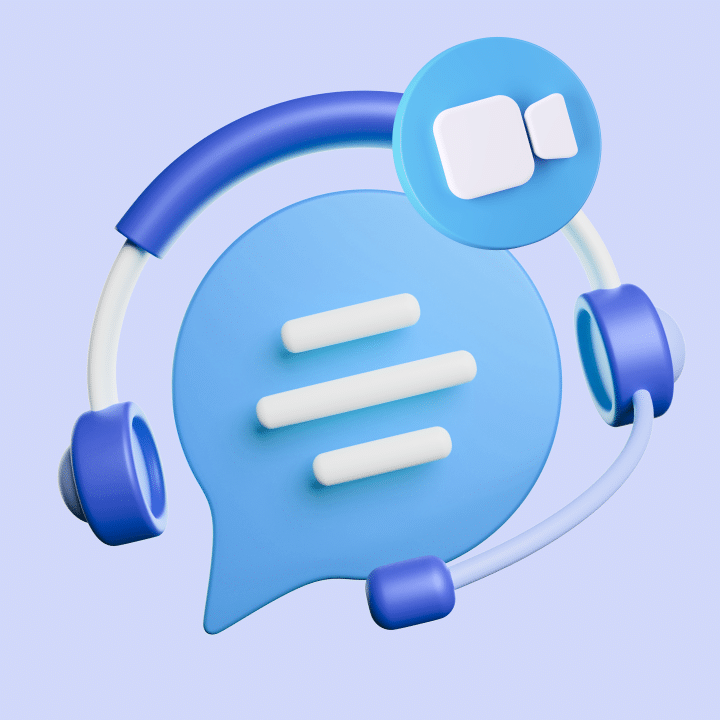It’s 2009. Modern Family aired its first episodes. Breaking Bad was gaining a permanent fan base. Your aunts and uncles sent you Farmville requests on Facebook. Avatar was released. People were glued to their Blackberry, and everybody was asking for everybody’s BB pin. In a historic moment witnessed by the entire world, the U.S. had just sworn in her first African-American President.
The same year, two unemployed ex-Yahoo executives – Brian Acton and Jan Koum introduced WhatsApp to the world.
Flash forward to 2022, WhatsApp has 2 billion active users across Android devices and iPhones, and it’s the most popular messaging app in the world. These users are also customers of a spectrum of products and services. So, it was only a matter of time before businesses used WhatsApp as a customer service channel to reach out to their target audiences.
And customers welcomed the idea. 80% of adults surveyed agreed they prefer SMS and Whatsapp to communicate with businesses.*
So if you’re planning to add WhatsApp for customer service, here’s how to go about it:
Table of Contents
- 1. Switch to WhatsApp Business Profile
- 2. Proactively update your customers with real-time notifications
- 3. Save time with Quick Replies
- 4. Use Labels to keep track of conversations
- 5. Deliver quality support with chatbots
- A powerful tool for businesses
[cta_block]
1. Switch to WhatsApp Business Profile
Would you be using your personal email ID to communicate with your clients and business messaging? Sharing your private inbox with your team comes with its set of challenges. You’ll be logged out intermittently, you’ve no way of knowing who’s reading what mail, and it’s difficult to assign ownership to emails. You need advanced features to scale your business to deal with these challenges.
How about WhatsApp? Is it okay to use your personal WhatsApp account to communicate with your customers? It’s not against the law, but how about trying an advanced version to help you deliver excellent customer service?
Que WhatsApp Business.
A business profile, no, a verified WhatsApp business profile with a valid phone number, adds legitimacy to your business and creates an element of trust with your customer base. WhatsApp Business has various advanced features that can help you deliver a seamless customer experience.
Your customers can access your business address, website link, contact information, social handles, working hours, and product/service catalog on mobile devices. This reduces your volume of phone calls, emails, and other pain points a customer faces to access basic information.
But if you really want to up your customer service game, you might want to consider getting WhatsApp Business API (think of it as WhatsApp Business Plus). Its API version is suited for larger organizations and helps them provide an end-to-end customer service experience through WhatsApp. WhatsApp API functions on your preferred choice of business solution provider and lets multiple agents in your support team access a centralized dashboard, a shared inbox, advanced automation, and detailed reports.
Making this choice depends entirely on your business size and volume of activity.
2. Proactively update your customers with real-time notifications

In an age where we can access multiple alternatives to products and services, customer service is one of the most defining parameters of brand loyalty. You don’t want to be that company that has a toll-free number for the sake of having one. Providing proactive customer service is the key to becoming a customer-centric organization.
A customer’s effort to go to his email app, create a new email, type your mail ID, enter the subject line, and include order and reference numbers is far more exhausting than just shooting you a simple text.
Forget about being approached via texts. The WhatsApp for customer service is even better. It will proactively send regular updates to your customers instead of having them reach out to you.
There are templates available to:
- Greet your customers
- Confirm their successful account creation with your business
- Update them about their order status, give them shipping updates and ETA
- Confirm appointments and even set reminders as a follow-up
- Convey that your website, for example, is facing issues and that it should be back up in X hours
- Send payment updates
- Inform them about their reservations for hotel rooms that they may have made weeks ago

This is one of the easiest ways to build customer trust for your brand.
If you need help understanding how to write human-centered templates, you could check out this resource on customer communication Hiver has put together.
3. Save time with Quick Replies
Do you want a guaranteed and remarkable increase in your Average Response Times with almost zero effort?
You can replicate the impressive turnaround times that emails offer with automated and ready-made templates, using the Quick Replies feature on WhatsApp Business.
Instead of manually typing answers to your customer’s most frequently asked questions, you can create a repository of pre-set responses, choose one that best answers your customer’s query, and shoot it out with a single tap.
This feature also gives you added benefits of maintaining a consistent voice for your business, reducing customer waiting times, and allowing your team to focus on more urgent and complex tasks. This is crucial when you plan to use WhatsApp for customer service.

You can use the Quick Replies feature to:
- Send welcome messages
- Answer your customer’s query about refunds or discounts
- Ask them for a review or feedback
- Notify about products that are back in stock
- Communicate delays in placing orders or delivery
- Answer FAQs on your bestselling products and services
What’s more, you can also send images and videos as Quick Replies to increase customer engagement.
4. Use Labels to keep track of conversations
Let’s assume you’re running an online pet store and most of your potential customers reach out to you over WhatsApp. A customer, let’s call her Emma, asked what shampoos in your grooming range would reduce her dog’s shedding. You told her you’d get back with a catalog, but then you suddenly got busy with new orders from other customers. Emma’s conversation thread eventually got buried under new ones.
You unnecessarily lost a sale (and worse, a potentially loyal customer) due to a cluttered chatbox.
Here’s where WhatsApp Business Labels come in handy. Its customized, color-coded labels allow you to organize your chats with your customer. For instance, you can create labels that say – pending, resolved, high priority, payments, renewals, and tag your conversations with the relevant labels for visibility and clarity. Using WhatsApp for customer service with these labels ensures your support is organized and efficient.
Is it as convenient as some of the superior tagging features available on email? Not at the moment, but we’re getting there.

You can even broadcast messages to customers within specific labels. Let’s say there’s a shipping delay on all orders. Using the broadcast feature, you can notify all conversations marked under “pending orders” or “to be shipped” about the revised ETA.
You can also broadcast follow-up messages to gain feedback from customers who received their orders or service.
Note that WhatsApp API allows unlimited broadcasts, while WhatsApp Business limits them to 256 contacts.
You can even use labels to sort your customers by country if you deliver products or services internationally. Suppose you’re exporting Swiss cheese to different countries in Europe, Eurasia, and North America. In that case, you could mark each label by that respective country’s name and flag and also create sub-labels for each country, such as pending orders, queries, and resolutions.
Be careful, though. WhatsApp allows you to create only 20 labels.
5. Deliver quality support with chatbots
Let’s imagine you’re in California, selling handmade quilts internationally. A huge eCommerce buyer from Tokyo wants to know more about your business. It’s 2 a.m., and you’re in deep slumber while it’s 5 p.m. in Japan. The more you make them wait, the more you risk losing the deal.
To avoid this, you could hire a night-shift agent. This could involve paying workers overtime to do longer shifts or potentially paying contractors in a different time zone that can be available to take calls during certain hours.
Or…
You could use WhatsApp chatbots to offer customer support 24×7.
You’ve got two options to offer an interactive experience – Lists and Buttons.
Lists

Imagine how manually exhausting and wasteful it is for a human agent to keep typing these options mentioned above every time a new customer reaches out. WhatsApp’s List feature helps you automate repetitive, primitive tasks while your agents resolve complex issues.
Buttons
While Lists are amazing and continue to be effective in automating repetitive customer support, it comes with some drawbacks.
Let’s say a customer contacts you via WhatsApp for custom-made cakes. Imagine your list reads the following:
“Welcome to Tracy’s cakes. Please choose what you’d like to celebrate by replying with any of the options below:
1. Birthday
2. Anniversary
3. Congratulations
The customer is confused with this list. If he wants a birthday cake, he’s unsure if he should respond with “1” or if he should type “1. Birthday”.
Another problem with lists is that a customer could make a typo and might have to start the conversation all over again.
Que, the recently launched, Interactive Buttons.

They look much more spaced out and breathable to the eye. They eliminate any confusion that may crop up while communicating with bots. If you plan to use WhatsApp for customer service, these buttons can a seamless customer experience and simplify the flow of the conversation.
A powerful tool for businesses
The beauty of Whatsapp is that most customers already know how to use it. Keeping this in mind, a lot can be harnessed with WhatsApp Business and WhatsApp API. Business accounts will find it perfect for a spectrum of use cases across products and services.
Whatsapp Business for customer service can be a great addition to your multi-channel support strategy. Depending on your business and the volume of tickets, your customers might also contact you via email, live chat, WhatsApp messaging and self-service portals, among other channels.
If your business offers these different customer touchpoints, consider unifying them on Hiver, the world’s most user-friendly customer service software to offer a seamless multi-channel customer experience.
 Skip to content
Skip to content











